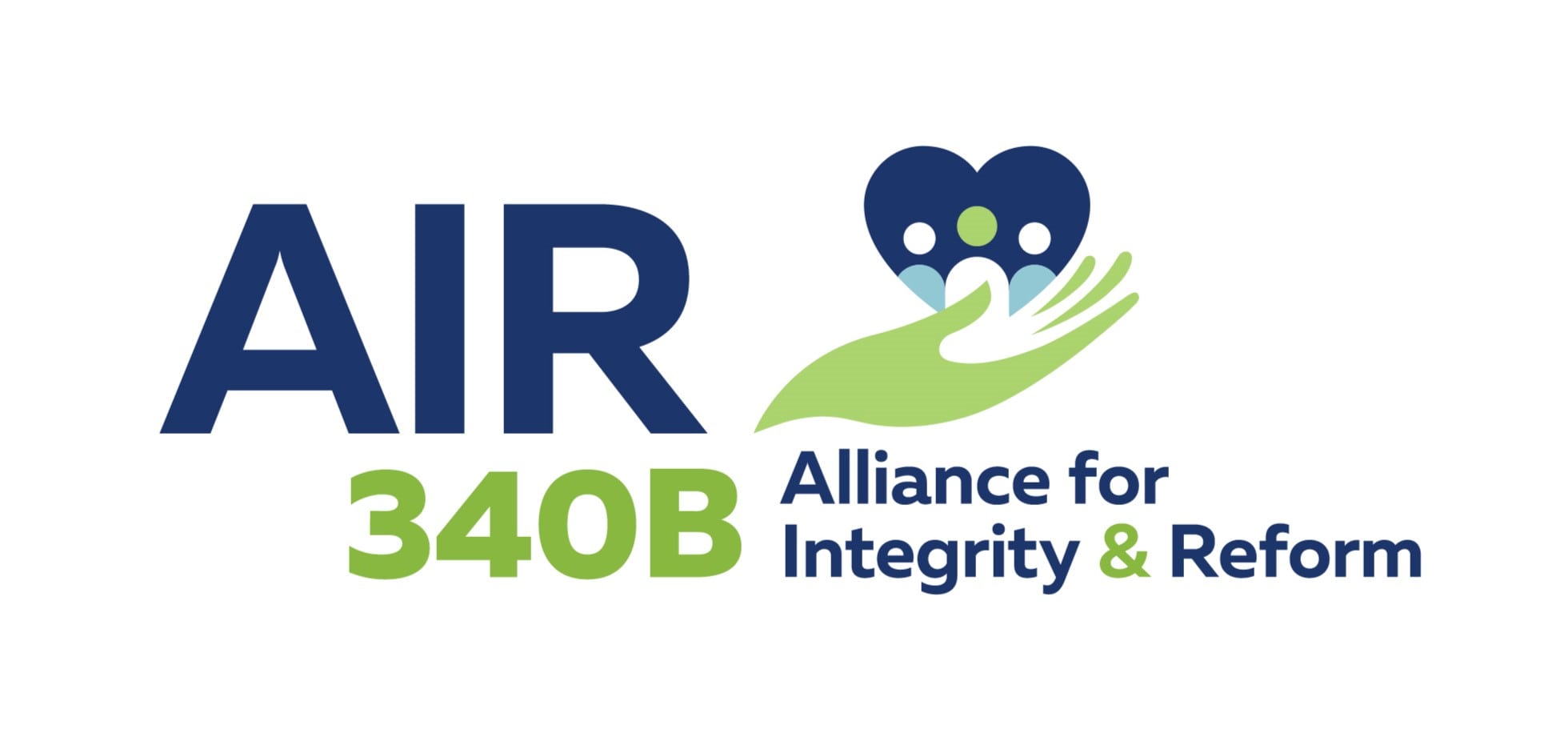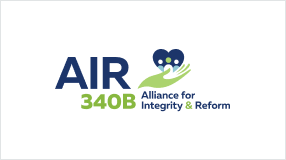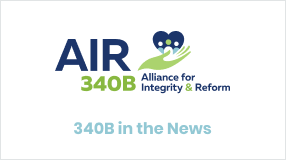Newsroom
Home > Newsroom
340B In The News
July 12, 2024
AIR340B Member Global Healthy Living Foundation Speaks to Radio Stations Across the U.S.
AIR340B coalition member Global Healthy Living Foundation’s Dr. Robert Popovian recently spoke with radio stations across the country on how the 340B program veered off track and the need for federal solutions to address program abuses.
Listen as Chief Science Policy Officer of Global Healthy Living Foundation, Dr. Robert Popovian, explains how the 340B program has strayed from its original goal of serving vulnerable patients to become a profit generator for hospitals, large chain pharmacies and pharmacy benefit managers (PBMs), and what we can do to get the program back on track.
340B In The News
May 28, 2024
AIR340B Coalition Shares Concerns About How Ohio Legislation Would Allow Chain Pharmacies and PBMs to Profit at the Expense of Patients in Need
The Alliance for Integrity and Reform of 340B (AIR340B) issued the following statement regarding Ohio House Bill 588 (HB 588)/Senate Bill 269 (SB 269), legislation that would permit further unchecked profiteering by contract pharmacies in the 340B program.
340B In The News
April 2, 2024
AIR340B Coalition Shares Concerns Over Maryland Bill That Would Allow Unrestricted 340B Growth With No Guaranteed Savings for Patients
The Alliance for Integrity and Reform of 340B (AIR340B) Coalition issued the following statement regarding Maryland House Bill 1056 (HB 1056), legislation that would accelerate the growth of for-profit contract pharmacies in the 340B program.
340B In The News
April 1, 2024
AIR340B Responds to Bipartisan Senate Request for Information
The Alliance for Integrity and Reform of 340B (AIR340B) provided feedback to the SUSTAIN 340B Act Discussion Draft and Supplemental RFI released by a bipartisan group of senators — Sens. John Thune (R-SD), Debbie Stabenow (D-MI), Shelley Moore Capito (R-WV), Tammy Baldwin (D-WI), Jerry Moran (R-KS) regarding steps Congress can take to improve health care outcomes within underserved communities.
In our response, AIR340B highlighted several important policies to improve program integrity and ensure existing program abuses are addressed so that patients are benefiting from the 340B program, as intended.
- True accountability in 340B requires a clear, statutory patient definition.
- Any reform must require 340B hospitals and their contract pharmacies provide discounts to low-income and uninsured patients.
- Reforms should aim to improve access and affordability for patients, not simply expand the program. Requiring manufacturers to provide unlimited discounts to thousands of contract pharmacies only helps PBMs and pharmacy chains, not patients.
- Proposed transparency requirements for covered entities are an important step forward, but more is needed to capture impacts of the 340B program on patient costs.
340B In The News
March 28, 2024
New Report Shows 340B Profits Often Exceed Charity Care Spending for Disproportionate Share Hospitals
The Alliance for Integrity and Reform of 340B (AIR340B) today released a new report, DSH Hospitals' 340B Profit Often Exceeds Charity Care Spending, which analyzed the latest data on hospital charity care and found that 85% of disproportionate share hospitals (DSH) earn more in 340B profit than they spend on charity care.
340B In The News
March 25, 2024
AIR340B Coalition Shares Concerns Over Minnesota Bill That Would Facilitate Unrestricted Contract Pharmacy Growth Without 340B Accountability
The Alliance for Integrity and Reform of 340B (AIR340B) Coalition issued the following statement regarding Minnesota House File 4991 (HF 4991), a bill that would aid in the unchecked growth of for-profit contract pharmacies in 340B.
340B In The News
March 14, 2024
AIR340B Coalition Shares Concerns Over H.R.7635 That Ignores 340B Program Abuse
The Alliance for Integrity and Reform of 340B (AIR340B) Coalition issued the following statement in response to recently introduced federal legislation, H.R.7635.
340B In The News
March 13, 2024
AIR340B Coalition Shares Concerns Over Mississippi Bill That Allows Contract Pharmacies and PBMs to Put Profits Over Patients
The Alliance for Integrity and Reform of 340B (AIR340B) issued the following statement regarding Mississippi Senate Bill 2145 (SB 2145) and House Bill 728 (HB 728), legislation that would allow for unchecked growth of for-profit contract pharmacies in the 340B program.



